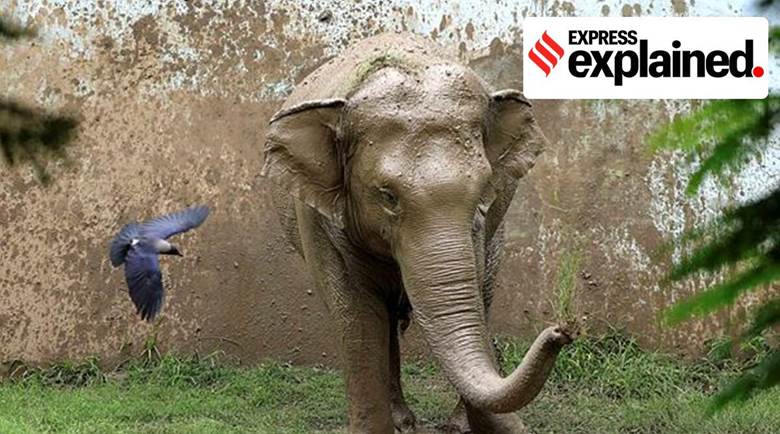WILD LIFE (PROTECTION) AMENDMENT BILL 2022
Copyright infringement is not intended
Context: The Rajya Sabha passed the Wild Life (Protection) Amendment Bill, 2022, which has invited scrutiny on two major issues: the exemption made to allow the transfer of captive elephants, and the sweeping powers given to the Centre to declare species as vermin. Lok Sabha had cleared the Bill in August during the monsoon session.
Details:
The elephant question
- In 1927, the Indian Forest Act listed the elephant as cattle.
- When WLPA was enacted in 1972, it identified the elephant, along with bullock, camel, donkey, horse and mule, as a “vehicle”. Given the highest legal protection in 1977, the elephant is the only animal in WLPA’s Schedule-I that can still be owned legally — by means of inheritance or gift.
- Since 2003, Section 3 of the WLPA prohibited trade in all captive wildlife and any (non-commercial) transfer across state boundaries without the permission of the respective chief wildlife warden. This made the live elephant trade go underground as traders switched to dressing up commercial deals as fake gift deeds to bypass the amendment.
- The WLPA amendment Bill 2021 proposed an exception to Section 43: “This section shall not apply to the transfer or transport of any live elephant by a person having a certificate of ownership, where such person has obtained prior permission from the State Government on fulfilment of such conditions as may be prescribed by the Central Government.”
- Along with conservation and animal welfare groups, the Parliamentary Standing Committee headed by Congress leader Jairam Ramesh objected to the blanket exemption, recommending to limit it only to temple elephants kept for religious purposes.
- Under pressure, the government modified the exemption but worded the amended clause vaguely to allow the “transfer or transport of a captive elephant for a religious or any other purposeby a person having a valid certificate of ownership shall be subject to such terms and conditions as may be prescribed by the Central Government” (emphasis added).
- Critics point out that the sweeping ambit of “any other purpose” will empower elephant traders, put wild populations at greater risk of capture, and defeat the very purpose of WLPA.
The vermin conflict
- The damage to the national economy due to crop depredation by wild animals has never been computed. But for lakhs of farmers around India’s many protected forests, it is the biggest challenge to livelihood (not to mention the occasional threat to life).
- Since 1972, the WLPA has identified a few species — fruit bats, common crows and rats — as vermin.
- Killing animals outside this list was allowed under two circumstances:
- Under Section 62 of WLPA, given sufficient reasons, any species other than those accorded the highest legal protection (such as tigers and elephants but not wild boars or nilgais) can be declared vermin at a certain place for a certain time.
- Under Section 11 of WLPA, the chief wildlife warden of a state can allow the killing of an animal, irrespective of its status in the Schedules, if it becomes “dangerous to human life”.
- The state governments took the decisions under Section 62 until 1991 when an amendment handed over the powers to the Centre.
- The purpose was apparently to restrict the possibility of eliminating a large number of animals at a species level as vermin. Under Section 11, the states could issue culling permits only locally and for a few animals.
- In recent years, however, the Centre has started using its powers under Section 62 to issue sweeping orders declaring species as vermin at even state levels, often without any credible scientific assessment.
- For example, nilgais were declared as vermin across 20 districts in Bihar for a year in 2015. The Centre cited “large-scale destruction of agriculture” as the ground for declaring monkeys (Rhesus macaque) vermin in Shimlamunicipality in 2019.
- The issue has since entered the realm of centre-state politics. Since last year, Kerala’s requests for declaring wild boars as vermin have been turned down repeatedly by the Environment ministry.
- That is why the House was divided on the issue, with members from Kerala highlighting the growing number of wild boar attacks in the state, and others seeking a more tempered and scientific approach in declaring a species as vermin.




.jpg)
.jpg)
1.png)
